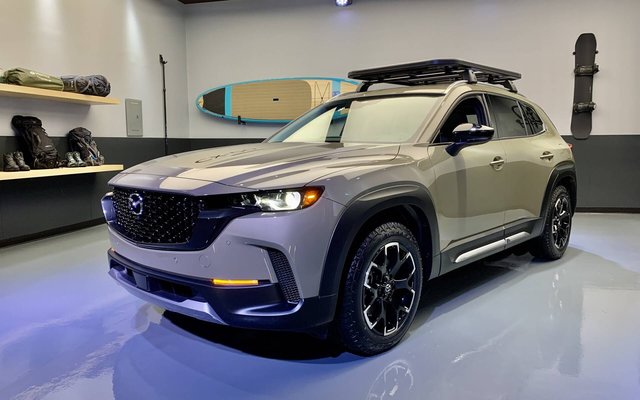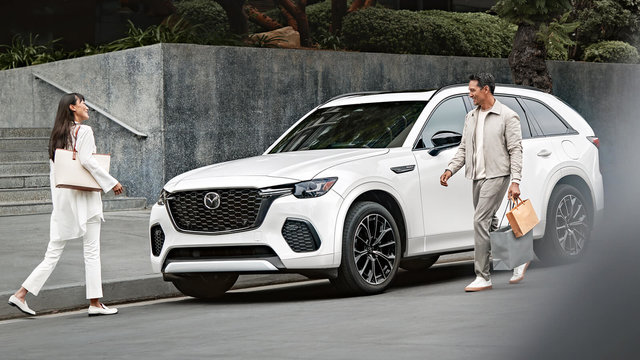Mazda’s plan to expand its SUV and crossover lineup today became a bit clearer with the introduction of the all-new 2023 Mazda CX-50, which is primarily designed for adventure and off-road driving enthusiasts.
The Car Guide had unique access to the vehicle during a special presentation in Toronto. Here’s what we found out.
Similar, But More Rugged
Aesthetically, the new CX-50 shares many similarities with other Mazda products. A bit more rugged and more robust than the CX-30 and CX-5, it somewhat captures the spirit of the late Tribute, which had a slightly tougher-looking appearance than the average compact SUV at the time.
Black body cladding on the rocker panels and angular wheel arches is the main difference. Just like the CX-30 and CX-5, the interior of the CX-50 offers seating for five.
Two Familiar Engines
Under the hood, customers will have a choice of two 2.5-litre four-cylinder engines. One is naturally aspirated and the other is turbocharged, once again imitating the CX-30 and CX-5. A six-speed automatic transmission and all-wheel drive come standard.
Power, torque, acceleration and fuel economy have yet to be specified. Same thing for pricing. Mazda will provide more information at a later date, but in the meantime we can tell you that an electrified variant will join the lineup in the coming years.
Off-road Driving Mode
Following in the footsteps of the refreshed 2022 CX-5, the 2023 Mazda CX-50 benefits from Mazda Intelligent Drive Select (Mi-Drive) technology, which enables the driver to select the most appropriate drive mode to optimize driving capability with one touch of a switch.
The pre-production model we saw in Toronto was riding on 18-inch wheels with Falken WildPeak A/T all-terrain tires.
Built in Alabama
The CX-50 marks a turning point for the brand as the first vehicle built at the new Mazda-Toyota joint venture factory in Huntsville, Alabama. The plant will have an annual capacity of 300,000 units.
Production will start in January 2022 before the CX-50 makes its way into showrooms a few weeks later.
By the way, this model doesn’t replace any existing Mazda product. Rather, it expands the portfolio by building on the success of the CX-30 and CX-5.





